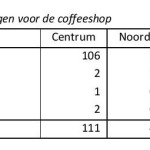Defeating The Fascists Is The First Order Of Business
No Comments yet
C.J. Polychroniou
08-21-2024 ~ In the moral and political struggle to create a future with alternative possibilities, we need to build a united front. Radicalism can co-exist with pragmatic progressivism.
As we approach the 2024 presidential election, we are constantly told that this election is pivotal for the future of democracy. This may be so because a second Trump presidency would most likely be far more dangerous than the first. It would be foolish indeed not to take seriously when Trump says things like “We will root out the communists, Marxists, fascists and the radical left thugs that live like vermin within the confines of our country.” And we already know what he plans to do with the administrative state: demolish it and replace it with MAGA loyalists. As for his energy policies, ways to cut grocery and mortgage costs, and his strategy to deal with the climate crisis, they can all be summarized with one simple slogan: “Drill, baby, drill.” Consequently, it is imperative that we defeat Trump in November. But as Bernie Sanders said just last week, “it is not the only task for our progressive movement.”
Indeed, there are so many things that need to be done in the hope that we can end predatory plutocracy, lessen the inequities of 21st century capitalism, counter militarism, and reinvent U.S. democracy. On the first day of the National Democratic Convention, all the speakers highlighted with passion the need to defeat Trump in order to protect democracy and the interests of average people. Joe Biden himself told the crowd that democracy prevailed under his watch and now must be preserved.
However, as one would expect from a mainstream political party, the Harris-Walz campaign is not offering an alternative vision for the future, one that would recapture the true essence of democracy. There is a lot of rhetoric about “joy,” “freedom,” and “a better future,” but Harris’s economic plan mirrors many of Biden’s economic initiatives though in an expanded format, such as her ideas for addressing the housing crisis.
Still, this is a step forward as Bidenomics undoubtedly represented “some of the most progressive domestic policies to have come out of the White House.” But let’s focus here on the big subject itself, which is democracy. Indeed, this may be the most propitious time to ask ourselves this: Is the U.S. even an actual democracy? There is plenty of evidence to contend that it is not; in fact, the U.S. was never designed to be democratic, so the obsession of the country’s political leaders, past and present, to portray the nation as the “world’s greatest democracy” should provoke laughter instead of elicit pride. For many years now, the U.S. has been rated by the Economist Intelligence Unit as a “flawed democracy,” while in 2022 the international democracy watchdog Freedom House ranked the U.S. 62nd in the world, “below every major Western European nation… and about even with Panama, Romania and South Korea.”
And how could it be otherwise? First, the U.S. president is not even elected by the popular vote. According to the Constitution—now more than 235 years old and terribly out of touch with contemporary society—members of the electoral college elect the president. Leaving aside the question of the history and evolution of the electoral college, the fundamental truth about the method used to elect the president is that it subverts the will of the people by allowing presidential candidates to win an election without securing more popular votes. In other words, it is possible for a candidate to win a majority of votes nationally but still lose the election because he/she lost the electoral vote.
We saw such outcomes in the presidential elections of 2000 and 2016 respectively. In 2000, Al Gore won the most votes, a half million more than George W. Bush, but lost the presidency in the electoral vote. Likewise, in 2016, Hillary Clinton won the popular vote comfortably, receiving nearly 3 million more votes than Donald Trump, but lost the election because Trump clinched more electoral votes. These outcomes should not be seen as paradoxes in a perverse political system, but rather as outright scandals. They speak volumes of the anti-democratic nature of the electoral college and, surely enough, of the undemocratic nature of the sacred text itself, i.e., the Constitution.
The United States has an even bigger democracy problem with the Senate, “an irredeemable institution” that disproportionately benefits small states, which are overwhelmingly rural, white and conservative, and is thus “racist by proxy.” The one state, two-Senators rule is nothing short of a recipe for minority domination.
Moreover, in U.S. elections, the political currency that carries greater weight is not votes, but money. The candidate who spends more money usually wins, and running for president is a terribly expansive undertaking. It costs billions of dollars. The 2020 election totaled $14.4 billion. The 2024 election is on track to be the most expensive of all time, expected to reach nearly $16 billion. What’s more, a handful of wealthy special interests dominate political funding, especially since rulings like Citizens United v. Federal Election Commission struck down spending limits as unconstitutional violations of free speech. Of course, the public is not happy with this state of affairs, as polls have repeatedly shown that the overwhelming majority of citizens believe that there should be spending limits for political campaigns. But what the public thinks and wants matters very little in U.S. politics. Scores of empirical studies have shown that U.S. politics is heavily tilted in favor of the rich and that political decisions systematically ignore the preferences of the poor and the working and middle classes.
So, what is to be done? How do we move forward towards ending plutocracy and unleashing the transformative potential of economic democracy? Is the undemocratic nature of the U.S. political system an unalterable state of affairs?
Real change is possible and so is a future with alternative possibilities. But change doesn’t happen overnight, and, in politics, it takes winning many different battles for a war to be won. Hence, we shouldn’t reject reform on account of ideological purity or avoid making some compromises because of deep moral convictions if, doing so, means that we fail to take any step forward. “Two steps forward, one step back” is a tactic that often pays dividends in the politics of radical social change.
We need to recognize that the two-party system isn’t about to change anytime soon. But this doesn’t mean that all is lost when it comes to making progress on the social and economic fronts. As experience has shown, serious and committed work at the community level can result in making a real impact on the national stage. The real fight for progressive power starts in local communities, one neighborhood at a time. This is because the only way we can sidestep the power of special interests is through solidarity mobilization and citizen participation.
There is a rich history of claiming citizenship not only in the U.S. but across the globe. We should study closely this history while also seeking ways to deepen democracy through citizen action that unites rather than divides progressives and moderates. As progressives, we need alliances. Reaching out to people with different political views from ours should be encouraged rather than discouraged. And we should all be united in combating the surge of neo-fascism or proto-fascism manifested in the MAGA movement. We must not allow anger over specific issues and concerns to derail us from the immediate goal, which is to keep the reactionary forces at bay. Sometimes we can only win one battle at a time. We should oppose U.S. imperialism and war at every turn while realizing that we can’t dismantle the imperial state with one shot.
In the moral and political struggle to create a future with alternative possibilities, we need to build a united front. Radicalism can co-exist with pragmatic progressivism. We have a world to win, to be sure, but we must first defeat today’s neofascists.
Source: https://www.commondreams.org/opinion/defeating-fascism-trump-2024
Our work is licensed under Creative Commons (CC BY-NC-ND 3.0). Feel free to republish and share widely.
C.J. Polychroniou is a political economist/political scientist who has taught and worked in numerous universities and research centers in Europe and the United States. His latest books are The Precipice: Neoliberalism, the Pandemic and the Urgent Need for Social Change (A collection of interviews with Noam Chomsky; Haymarket Books, 2021), and Economics and the Left: Interviews with Progressive Economists (Verso, 2021).
You May Also Like
Comments
Leave a Reply







